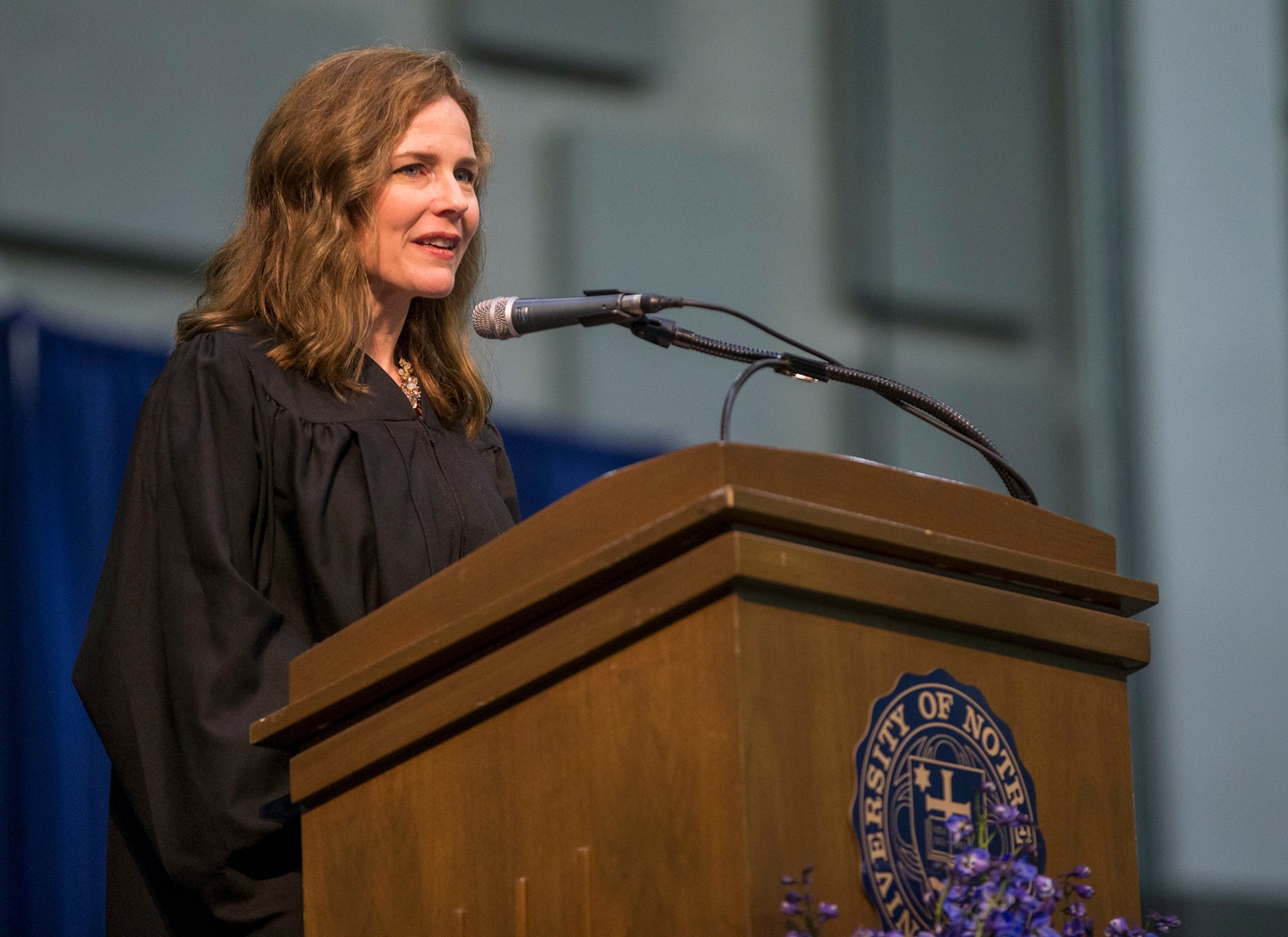What Amy Coney Barrett actually said about election-year Supreme Court vacancies

Barrett, who was then a law professor at the University of Notre Dame, spoke to CBSN in February 2016, shortly after Justice Antonin Scalia died. Republicans had just controversially declared that they would block whomever President Barack Obama nominated for the seat because it was a presidential election year.
In the course of her answer, she noted that a Democratic president replacing arguably the court’s most conservative justice would shift the court significantly. Some argued that she was saying that such a thing was wrong or that she opposed such a thing in an election year. That’s a stance that would be at odds with what’s happening today, when she or any other Trump nominee would replace one of the court’s most liberal justices, Ruth Bader Ginsburg, in this election year, and shift the court substantially to the right.
But the full context of Barrett’s remarks make clear she was saying no such thing. In fact, she was explicitly making a point about how rare such a scenario would be in divided government — a situation we don’t have today, with a president and Senate controlled by the same party.
Coney noted that the only recent example of a Senate controlled by the opposite party confirming a president’s nominee in a presidential election year was Anthony M. Kennedy — a Ronald Reagan appointee whom the Democratic-controlled Senate confirmed in early 1988. That vacancy was different from what was happening in 2016, she noted, because it actually came about in 1987, and the Democratic Senate was replacing a moderate Republican appointee (Lewis F. Powell Jr.) with a moderate Republican appointee.
“We’re talking about Justice Scalia, the staunchest conservative on the court, and we’re talking about him being replaced by someone who could dramatically flip the balance of power in the court,” Barrett said. “It’s not a lateral move.”
That’s not taking a position on what’s appropriate; it’s merely summarizing what happened. But beyond that, she was explicitly talking about divided government, which doesn’t apply in 2020.
“The question is what does this precedent establish, and I don’t think it establishes a rule for either side in the debate,” Barrett said. “If you look back at, say, the six [justices] that were confirmed in the 20th century in a presidential election year, all but one of those was confirmed … in a period of united government, where the president and the Senate were the same political party.”
Barrett noted that setup meant that it “shouldn’t be a surprise” that those justices were confirmed, but then raised Kennedy as the exception.
Barrett added, crucially: “The president has the power to nominate, and I don’t think either one of them can claim that there’s a rule governing one way or another.”
That would seem the most operative quote today.
Barrett’s argument was a little hard to follow, which is relevant in that she could soon be taking the hot seat at confirmation hearings and facing some very difficult questions, but these comments are being misconstrued. However one feels about how Republicans handled 2016 vs. 2020 — and their flip-flop is clear — this doesn’t really further their critics’ case.






